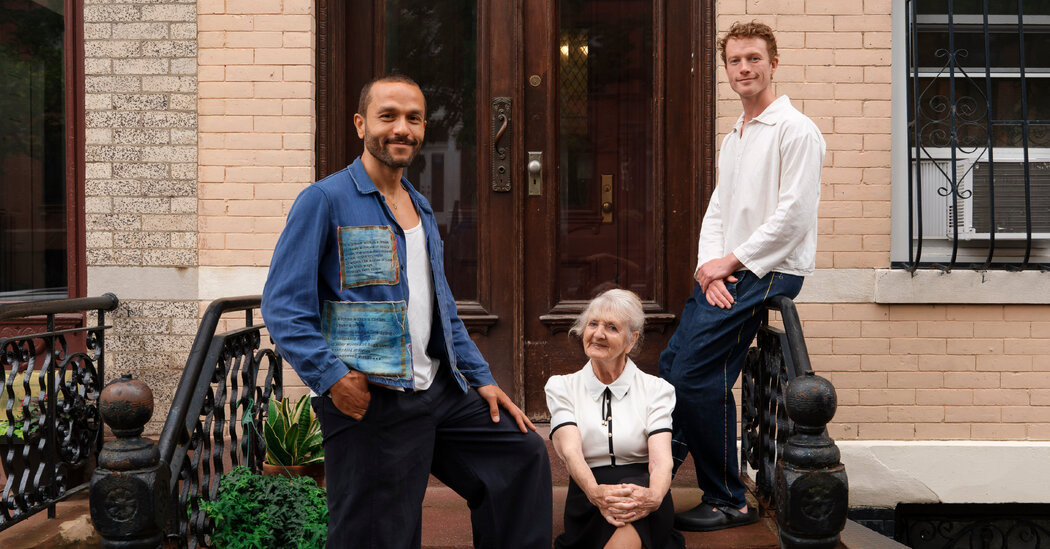

Most young adults don’t expect to support their aging parents. Here’s what happened when four people had to.
Five years ago, Sian-Pierre Regis, then 35, welcomed new roommates to his Manhattan apartment: his mother, Rebecca Danigelis, 78, and his partner, Sam Moll, 30, whom he had been dating for two years. “It sounds like a sitcom — two gay men and a mom in a cramped New York rental,” Mr. Regis said. “It felt like this quirky experiment.”
They made the most of their tight quarters, constructing gingerbread houses together at Christmas and sharing “highs and lows” every Friday at the dinner table. But for Ms. Danigelis, encountering her son’s dirty dishes in the sink and sleeping in a windowless spare room was not exactly how she had envisioned her golden years.
Instead, the arrangement was born of necessity after she was laid off from her longtime job as a hotel housekeeper in Boston and could no longer afford her rent.
“I never in the world expected to be in that position,” she said. “I’d worked my tail off my whole life.”
At the time, Mr. Regis didn’t know anyone else in his shoes, either. “None of my friends had parents living with them,” he said. That changed after he and his mother shared their experience in a New York Times article about young adults who were financially supporting their parents, published in May 2020.
In the years since, those young adults have found solidarity with others in the same boat — people in their 20s, 30s and 40s who help their parents with money, housing or both. As Mr. Regis said, “It opened up conversations with peers that made me realize I was much less alone in my responsibilities than I thought.”


![Enjoy the [Road] Show Travel Mug with Handle, 14ozEnjoy the [Road] Show Travel Mug with Handle, 14oz](https://georgemagazine.com/wp-content/uploads/2024/08/479070202831754764_2048-300x300.jpeg)
